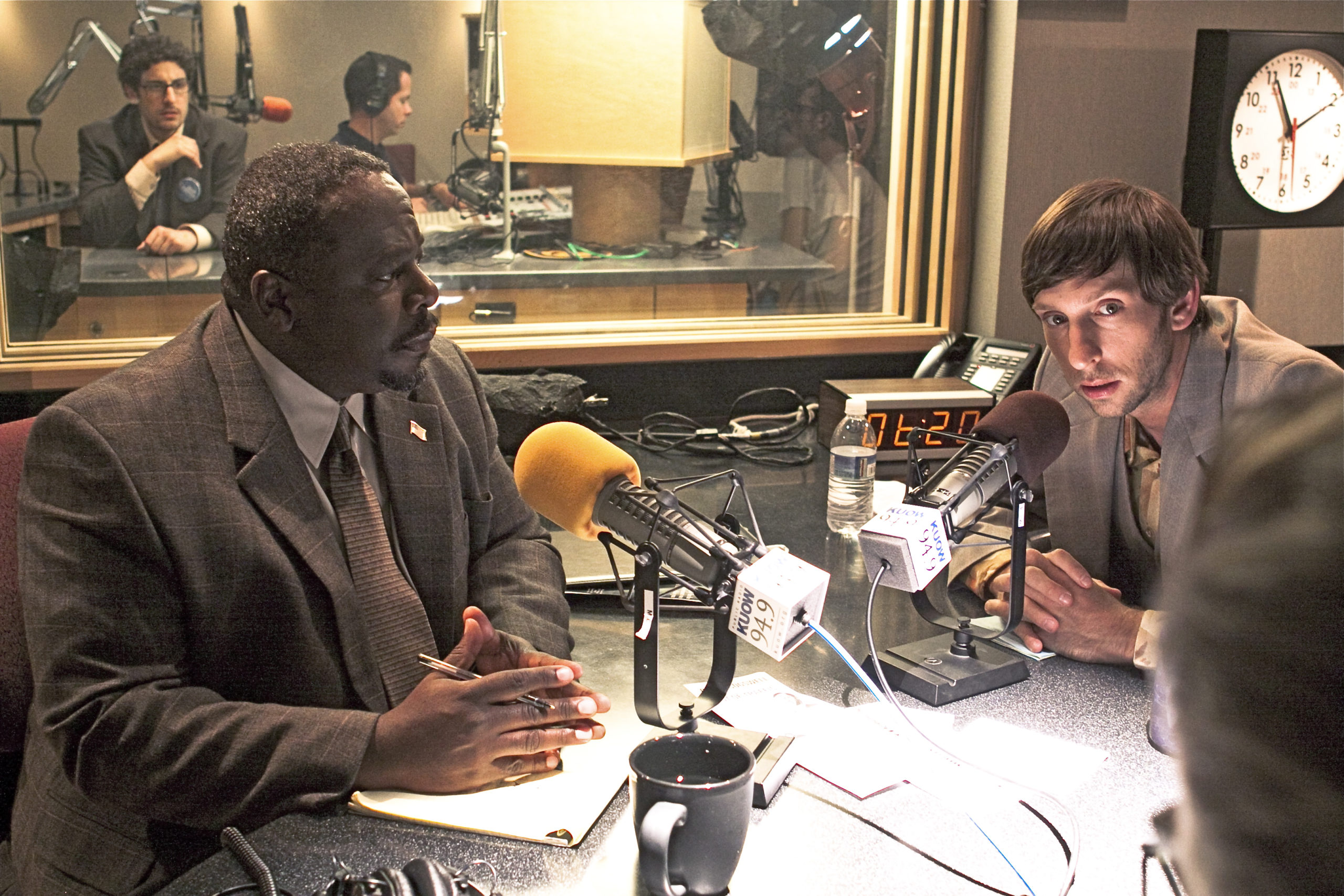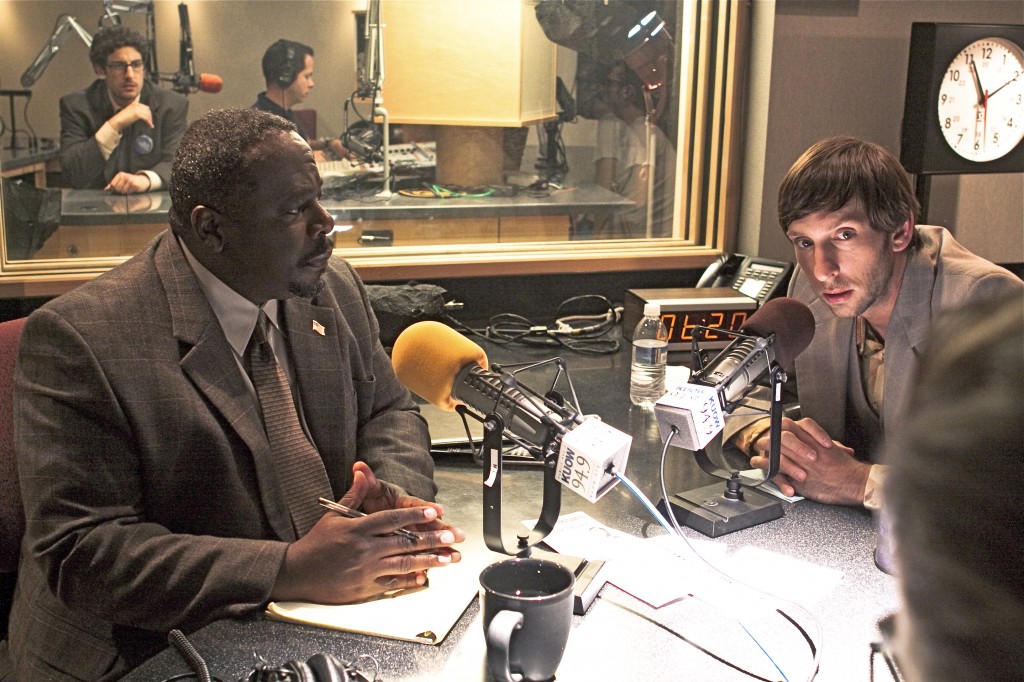Stephen Gyllenhaal’s new political comedy, Grassroots, hits cinemas at the perfect time. Based on ‘Zioncheck for President’, the memoirs of lead character Phil Campbell, it charts the progress of his friend Grant Cogswell; a young and inexperienced idealist with one ambition. He wants to bring social equality to Seattle by developing the city’s elegant monorail, with the help of some fervent students and a polar bear suit.
When Cogswell, an unemployed music critic, decides to run for a seat on the local council he encounters a range of problems. He is a single policy candidate with no political prowess, no funds, and only Campbell as his equally inexperienced campaign manager. GUM had the chance to speak to director Stephen Gyllenhaal, who reflected on his motivation in making the film. “I loved the idea of two white slacker dudes who had no business going into politics, and not only doing it, but trying to unseat the only African-American council member in Seattle. Everything about it seemed wrong”. Certainly, the fact that Cogswell specifically targets African American Richard McIver does not go unnoticed. While Joel David Moore’s Cogswell is sometimes too idealistic and too one-dimensional, Jason Biggs’ portrayal of Campbell shows the great emotional journey of a character who only agrees to help his friend because he was recently fired and is struggling to get off the sofa.
Although the film is set in 2001, more than a decade later it is pertinent in the wake of recent grassroots campaigns such as the Occupy movement, and even, argues Gyllenahaal, the election of Barack Obama. “If you actually look at and analyse now what happened with the presidential campaign, it was really grassroots politics that put Obama over the top. The core of democracy is grassroots”. Several fringe campaigns in the UK have experienced success. 2011’s Save Our Forests resulted in the government abandoning plans to sell off huge areas of forest. The campaign for Scottish independence even started out as a grassroots movement. Gyllenhaal is keen to stress the importance of local council work, and how accessible it can be. He says, “As we’ve gone round the country, there have been a lot of young people who are running for office. On a local level they can make a lot of difference. The only problem is they don’t think they can do it.” Indeed the film epitomizes the potential of the underdog and a readiness to fight and to get angry. The army of volunteers that facilitates the campaign with its tireless leafleting and preaching (“Hold back my hair while I spew truth!”) consists of hip youths who meet in coffee shops. As Gyllenhaal says, Grassroots is a story of two people “totally unqualified to begin with but gradually working their way towards understanding how to do things”. Cogswell‘s first public speech might involve swearing nonsensically at people whilst showing pictures of trains and toilets but eventually, he is able to channel his self-righteous vivacity and silence his opponent.
Although the film is first and foremost a comedy, it also helps to convey the importance of political engagement at all levels. Gyllenhaal argues, “I think movies become a piece of the dialogue that brings about change, when people really start to feel that the government isn’t working. That’s when people really wake up, and these kinds of films help with supporting that realisation.” Grassroots communicates the passion that anyone involved in demonstrations and campaigns can relate to. While Cogswell’s only policy of advancing the monorail might be exclusive to Seattle, the underlying ideas of social justice, quality of life and even global warming, are relevant to us all. The passion that Cogswell and Campbell invest in their project cannot help but resonate. Gyllenhaal hopes “that people leave cinemas thinking ‘If these two idiots can do it, why can’t I?’ But even more so, my motivation was to make people laugh. One has to laugh around politics.” And Grassroots is funny, and bittersweet. It never takes itself too seriously. Cogswell’s statement, “Build the monorail. Save the planet, you fucks!” perfectly captures the spirit of fun that can, and should, come out of grassroots politics.
Grassroots is in cinemas now.
Words: Henrietta Eagle-Wilsher


